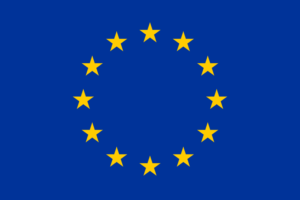 [Paul Keller, Communia Association, Link (CC-0)] Yesterday we sent an open letter on copyright reform to the EU Member State ministers attending the Competitiveness Council. We have done so together with more than 60 other civil society and trade associations – representing publishers, libraries, scientific and research institutions, consumers, digital rights groups, start-ups, technology businesses, educational institutions and creator representatives.
[Paul Keller, Communia Association, Link (CC-0)] Yesterday we sent an open letter on copyright reform to the EU Member State ministers attending the Competitiveness Council. We have done so together with more than 60 other civil society and trade associations – representing publishers, libraries, scientific and research institutions, consumers, digital rights groups, start-ups, technology businesses, educational institutions and creator representatives.
The letter reflects our growing concern over the fact that the EU is wasting the long overdue opportunity to reform its outdated copyright framework. And that we are missing a chance to make it fit for purpose in the digital environment. At the root of the problem is the Commission’s backward looking proposal for a copyright in the digital single market directive that was presented in September of last year.
More than half a year later we see the discussion on the reform proposal caught up within the narrow vision that the Commission has presented. While the European Parliament is so far moving in the direction of fixing the biggest flaws of the Commission’s proposal and seems to be willing to introduce some additional positive elements, the Member States are moving in the opposite direction. There is a lot of concern that Member States are attempting to hollow out the positive aspects of the proposal while doubling down on the measures designed to protect the business interests of legacy intermediaries (such as publishers and record companies).
Given this we have joined forces with a diverse group of stakeholders to ask the Member States (and other EU lawmakers) to oppose the most damaging aspects of the proposal and to embrace a more ambitious agenda for positive reform. In particular the open letter is highlighting three key messages:
- Article 13 (the proposed ‘censorship filter’ for online platforms): The EU must not impose private censorship on EU citizens by filtering user uploaded content. Article 13 should be removed from the copyright negotiations and dealt with in appropriate contexts.
- Article 11 (the proposed new right for press publishers): The EU must not create new copyrights. For this reason article 11 should be removed from the proposed directive.
- Articles 3-9 (new mandatory exceptions for education, research and access to cultural heritage): We need to ensure that Europe remains competitive by enabling innovation, research and education. European lawmakers should enact broad exceptions that enable broad participation in the core aspects of our information driven societies. Exceptions for text and data mining, education and access to cultural heritage need to apply broadly and uniformly across the EU, without being overridden by contractual terms or technological protection measures.
You can read the full letter here.




